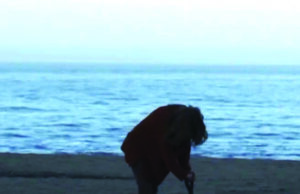#MeToo Breaking all barriers

There can be confusion regarding what constitutes harassment versus assault. Sexual harassment is often thought of to be groping or rape, however, this is sexual assault. Rape is an extreme form of sexual assault. Unwanted sexual comments, either on social media or in person, are sexual harassment.
Sexual harassment (n.) harassment (typically of a woman) in a workplace, or other professional or social situation, involving the making of unwanted sexual advances or obscene remarks.
Sexual assault (n.) illegal sexual contact that usually involves force upon a person without consent or is inflicted upon a person who is incapable of giving consent (as because of age or physical or mental incapacity) or who places the assailant (such as a doctor) in a position of trust or authority
#MeToo. The movement that gained traction in late 2017 has rallied victims of sexual harassment and assault together. It let victims take control of their stories.
This movement has allowed people to speak out about an issue where the status quo has been to keep it quiet, often out of embarrassment, fear or retaliation or a sense of isolation.
While the #MeToo movement focused highly on celebrities’ stories, it also prompted the discussion of sexual harassment and assault in local communities.
Sexual harassment and assault afflicts all cultures, social classes, genders and age groups. Children and teens are at high risk of falling victim to sexual assault, and even more to sexual harassment. High school students are no exception. With the momentum of this movement, some students, no longer afraid of sharing their stories, opened up to us.
SOPHIA
Interviewed by: Marli Davis
Sophia*, senior, received unwanted sexual attention in the workplace from an older woman.
“I always thought she was so sweet, she always was like ‘you’re so cute.’ I thought it was just small talk. She asked me a lot if I was dating boys or if I had a boyfriend and things like that. I just thought she was trying to be friendly,” Sophia said. However, Sophia soon realized that there was a problem with the woman’s behavior.
“She was saying things about my body that she shouldn’t have been saying. She started making me really uncomfortable and I started talking to her less and less. She was like ‘Oh you should come over to my house,’” Sophia explained. “I was at my register and I was walking past my other coworker and she just, she kind of…” Sophia paused for a few seconds, collecting herself. “You know how when you brush past someone you might touch their shoulder or their back? She touched my private parts.”
Sophia did not want people to think she was crying wolf or being overdramatic about the situation, so she waited before speaking up. She was embarrassed talking about the situation even with her parents.
“When I told people about it, they didn’t take me seriously. They all said things like, ‘Oh she’s so nice, she’s older, she didn’t mean it like that,’” Sophia said.
Her parents reacted the same way. When she told them about the comments, they responded with, “‘Oh it was probably just a mistake, you’re probably just misreading it,’” Sophia said. Their response changed when she told them about the physical harassment. “I told them about how her behavior progressed, and then that’s when they were like, ‘Okay, we need to talk to someone.’”
Sophia reflects on why people responded this way. “I think that people didn’t believe what happened was sexual harassment because of a mixture of me being so young and everyone being so sensitive nowadays. Also a big part of it was that she’s a woman– and that she was a woman that everyone liked– and was older. If it was some old man it would be over like that,” she said with a snap of her fingers.
After telling her manager about how she was sexually harassed, Sophia and the woman were scheduled to different shifts. However, that did not solve the problem. The woman still attempted to talk to Sophia whenever she saw her. “It still made me uncomfortable that she was there, so I ended up quitting,” Sophia said.
Sophia wishes that the woman was held accountable for her actions and fired from the workplace. She offers a piece of advice to others facing sexual harassment and assault: “Tell people immediately because I waited a bit to see if I was being dramatic, but obviously I feel like my first instinct was right: what she was doing was not okay.”

AMY
Interviewed by: Maya Chari
Amy*, junior, was raped by a friend.
“I had a boyfriend at the time, and my friend and I were going to meet up at my house and watch ‘Stranger Things,’” Amy said. “We were there, in my house, and he kissed me hard. I was saying no because I had a boyfriend, and then it got to a bad point. I said, ‘You need to stop,’ and he barely acknowledged it– he didn’t even stop.
She paused her story to say hello to a friend who had just walked in the coffee shop where we were talking.
I asked if she called for help, and she told me she did not yell to her mom for help. “I didn’t want her to walk in and see that,” Amy said. “I was too in shock to call out or do anything smart, other than say no.”
Afterwards, Amy and her rapist waited for his mom to pick him up from her house. She was quiet for several days, and she is not a characteristically quiet girl. She just could not physically talk– it was not until a few days later when she finally told her dad.
“That night the police came to my house, and took my full statement. They weren’t very nice. Once I had a case out, I wasn’t allowed to talk about it. Nothing happened with the case… so I just dropped it because it was too much. It was too much pressure not (to be allowed) to talk about it, weirdly enough,” Amy said.
She paused again to pull a cat hair out of her eye, and we shared a moment talking about her pet named Ollie whom she calls Oliver when he is behaving badly.
Amy was pensive and careful with her words. “I think no one wants to make ‘the rape cry’ and get proven wrong,” she said. “Because no one is going to fess up to doing it. It’s pretty difficult to nail people for that, and (the police) have stopped trying to.”
Amy declined any counseling or therapy to cope with the assault. “People shut down and people get depressed, but that wasn’t me,” Amy said. “It’s a thing that happened and it’s a part of my life story and I have a ton in my life story.” She listens to a lot of music– especially to Lady Gaga– because it helps her remember that she is not alone.
“I have no problem talking about it, but people have a problem listening and not getting uncomfortable about it. A lot of people can’t even say the word.” Amy is open with her story, in part because it puts a name to the blank face that covers the heavily avoided subject of rape. She hopes that when young people realize that they share communities and lives with people who have experienced assault, they will understand how real and relevant the problem is.
She also advocates for more conversation and acceptance in a school environment. Last year, Amy wanted to research what constitutes rape for a class project, but she was met with resistance due to possible sensitivities related to the subject. Her teacher was not comfortable bringing “it” into the classroom. In the end, she was not allowed to use the topic.
However, Amy wants to continue humanizing victims of sexual assault.
“I think it could be a chain reaction. There are a bunch of people where it’s there but they don’t talk about it,” Amy said. “If they see people that they know that it’s happened to, it might shift their perspective.”
LAUREN
Interviewed by: Caitlin Henderson
Lauren*, senior, was sexually assaulted at 16 years old.
We sat out of earshot in a crowded room. I apologized for not finding a quieter place, but she assured me that she felt comfortable. I asked her what happened.
Lauren told me: “I was hooking up with a guy, we were making out. Then he literally pinned me down and I was like, ‘Oh my God. Get off me, get off me,’ and I kept yelling at him. I was like, ‘Dude, stop, get off me.’”
The perpetrator did not listen.
“I kept kicking his leg and pushing his arms, and saying ‘Stop,’ and he just kept going,” Lauren said. Her voice grew louder as she described the details of her memory.
“It’s so scary to be overpowered by someone because that’s never happened to me before. I couldn’t get him off me. It was genuinely horrifying, and really I thought I was going to be raped.” Lauren said. Her body language changed in response to her words: her eyes widened, her brows were furrowed and she drew closer to me.
Lauren did not speak to an authority or her parents after the assault, and she even struggled telling her therapists.
“I was just so afraid of telling my parents about what had happened, or even telling the (police) because we were both minors. I was 16. That guy was 17. It was just like, I feel so ashamed to even go up to my parents and be like, ‘Hey, I was with a guy.’ That doesn’t sound good. I feel like if I were to tell someone they’d be like, ‘Oh that’s on you. You were hanging out with a guy. You should expect that to happen,’” Lauren said, her voice becoming quiet.
She wore the look of guilt on her face as she continued: “I feel like a lot of the time people think it’s their fault. I definitely felt like it was my fault.”
This feeling of guilt continues to burden Lauren. She believes that the social stigma and taboo surrounding teenage sex made her ashamed of what had happened. “I feel like that kind of idea and stigma really affects girls and that affects the way they see their own image. And because I was in that situation I feel like a s— now,” Lauren said.
She explained further that even if her parents were understanding, she would not have reached out to them about the incident.
“I don’t want to lose that trust with my parents. I don’t want to lose the ability to go out and do things,” Lauren said. “Sometimes, even if it’s better to talk to an adult, we feel as teenagers that we’ll get blamed for it.”
VERBAL HARASSMENT
Interviewed by: Marli Davis, Kavita Rai
In addition to physical assault, verbal harassment is prominent amongst teenagers and high school students.
“Making sexual comments or sexual innuendos from one student to another that offends someone and is definitely unwanted and unnecessary, that’s not tolerated on campus,” Kelly Welch, assistant principal, said. While it may not be tolerated, the school cannot regulate all unwanted comments that circulate throughout campus and sometimes even follow students back home, through harassment over text and social media.
I met with Kayla*, sophomore, who filed a school restraining order against a boy from her class due to the constant unwanted sexual comments she received from him.
During her freshman year, a boy that she knew started sending her unwanted lewd texts. “He got my number and wouldn’t stop texting me really creepy things like ‘I want your sexy body.’ I was really uncomfortable, and every time I said stop he wouldn’t, and he kept calling me,” Kayla said.
Although he never tried to touch Kayla, his comments and his presence at school still made her uncomfortable and scared. She would walk the other way in order to avoid him. Unfortunately, Kayla was not the only person that the boy made unwanted sexual advances on. He sent similar texts to another girl in the grade. After two months, Kayla talked to the administration, specifically assistant principal Michael Godfrey.
The administration acted quickly to put an end to his inappropriate behavior. “They put him on a contract and he’s not allowed to talk to me anymore,” Kayla said confidently. He is on the same contract with the other girl he inappropriately texted. He is also barred from being in their classes.
The casual nature of texting and the language used on social media can blur the lines of consent, making it harder to interpret true intentions.
Hayley*, senior, and I left class early and met in the nearly empty library.
At the age of 15, Hayley had a crush. They regularly messaged each other on social media. It was fine at first. Hayley enjoyed the conversations, but then he began to pressure her to be sexual. Although it made her uneasy, she went along with it.
“In my mind I convinced myself that this is what happens when a guy likes you, and this is what you’re supposed to do. I did not recognize how overtly sexual it all was at the time,” Hayley said. For many like Hayley, there is a lack of understanding in regards to sexual relations that mainly attributes from the “hush-hush” culture regarding sex.
Hayley often looked at the ground, struggling to piece her thoughts together as she twisted the ends of her hair habitually.
“I don’t think I understood what was happening at the time, because you know, you’re always told that sex is bad, don’t do it at all, or wait until you’re married,” Hayley said. “I wish that there was a greater understanding, because sexual harassment happens for a reason, and we need to discuss it instead of pretending like it doesn’t exist.”
A large portion of Hayley’s unease is due to the role technology played. Hayley believes communication over text messages made it harder for her to understand his true motives. “I think if it was verbal I would have understood. I would have understood what he was trying to do, but I think just over text messages or over Snapchat, you can’t really understand their tone.”
Text and social media creates a gray area of consent, since there is no body language or verbal cues that reflect intentions. This can result in uncomfortable and unsafe feelings without having to be sexually assaulted.
“I think (what happened to me is) sort of like a question mark; it’s not quite in the area of #MeToo, but it’s still not completely healthy either,” Hayley said. Hayley felt used and hurt. However, she does not believe she was sexually harassed or assaulted, but rather it was her misunderstanding of the situation.
“I was not harassed. However, I think what happened really speaks to just the culture of not really understanding consent and not understanding what a healthy relationship is supposed to be. I was only 15– I was really naive and I didn’t know anything about relationships,” Hayley explained. From Hayley’s perspective, the murkiness around the proper conduct in sexual relationships has led to sexual harassment in others’ relationships, and could have led to the same in hers.
CONSENT
Interviewed by Marli Davis, Caitlin Henderson
Sarah*, junior, was 14 when she started dating. Her relationship quickly became abusive.
“I was in a relationship at a young age before I understood consent and didn’t know I could say no, even to my boyfriend,” Sarah said. “When I did understand it, I was guilt-tripped or even threatened into sex.” Like Sarah, many have the misconception that you cannot be raped by a partner. The lack of awareness that led to Sarah’s situation taught her a painful lesson. “People you trust can manipulate and control you. I learned to be in control of my own body,” she said. “I learned the hard way that relationships shouldn’t equal pain.”
Speaking out has allowed the conversation about sexual harassment and assault to take center stage, but Lauren believes that teenagers need an explicit understanding of consent. For students like Sarah, the lack of understanding of sexual assault and consent allowed her to be easily manipulated as a freshman.
“You can’t just shelter your kid and be like, ‘Oh that’s never going to happen to my kid.’ Obviously it happened to me. And I was very sheltered up until junior year of high school,” Lauren said. “I feel like consent should be taught. Just because you’re making out with someone doesn’t give them the right to take it further.”
Lorena Caufield, health teacher, explained that in comprehensive health class, a Ventura County organization called Interface visits the students to teach about consent. Under California’s Yes Means Yes law, consensual sex requires “affirmative consent” without the influence of drugs or alcohol. Students in the comprehensive health class learn about this law. However, students who take online health class do not learn about consent at all.
“If people are taking Get Ahead health, they are not guaranteed that they’ll get that information,” Caufield said. “They don’t have the guest speaker that’s coming in.”
Additionally, Caufield explains that freshmen who do learn about consent in comprehensive health might not retain the information if it does not immediately apply to their lives.
“If it’s not a part of somebody’s reality at the moment, they’re not absorbing it. They forget,” Caufield said. A possible solution that we discussed on the phone was a workshop specifically for juniors to refresh that portion of the health class course, mainly because they are older and able to have more mature conversations.
Christy Hodson, English teacher, recognized that the vast maturity differences between freshmen and seniors affects the way students react to sensitive subjects. “You would speak to seniors differently than you would speak to ninth graders and consider the level of maturity of the students,” Hodson said. For teachers, discussing such a sensitive topic is walking on thin ice. They have to consider how students who have experienced trauma might be affected. Also, having victims openly discuss their stories in class might lead to backlash that could end up hurting the victim more.
Hodson believes that it is a collective responsibility in our society to address sexual harassment and assault in order to prevent them from happening.

RECEIVING HELP
Whether an incident of sexual harassment or assault occurred on- or off-campus, the school administration is available for students’ needs.
“We are here to support students with whatever they need. If a student is unsure of what to do, they can at least ask for advice or counsel on what to do. We don’t want any student walking around campus feeling uncomfortable or sad or upset or angry about anything,” Welch said.
In some instances, students feel comfortable resolving situations on their own, and do not want or need administrative intervention. However, if the perpetrator continues to harass a student and administration is made aware of the issue, the school will intervene.
The process of addressing a sexual harassment or assault incident begins with a report by a victim or a witness. Then, it is referred to an administrator based on grade level.
“The district has a zero tolerance policy for any of that,” Welch said. She added that the administration will help students facing sexual harassment and assault, but they cannot help if they are not aware of the situation.
While information is kept as confidential as possible, Welch explains that the administration must still contact parents.
“If a student comes to us and makes a report of a situation with another student, then we will involve parents because they are minors and it’s our duty to inform parents when situations arise.”
Consequences vary from case to case depending on the perpetrator’s track record and whether the student has been accused before. Contracts are sometimes effective, as in Kayla’s situation, however further measures may be necessary.
“Unfortunately there’s not a chart like ‘If this, then this.’ But some of our discipline is very clear, cut and dry. There is school board policy that supports suspension for sexual harassment or sexual assault,” Welch said. “That is the typical discipline consequence that applies, but that might not be the only consequence, or it might not get to that level of suspension.”
Beyond suspension, perpetrators may also face criminal charges. Administrators will go to law enforcement and the school resource officer when the accusation involves criminal behavior. In this case, the police will take over the investigation.
“Of course, if a student comes to us and makes a claim about activity occurring off-campus by (a non-student), we are going to involve law enforcement right away,” Welch said.
As of this year, the school has had three documented reports of sexual harassment, not assault.
If no evidence is found after an investigation, the process continues with monitoring of both sides. If new evidence comes to light within the monitoring period, then it may constitute a reinvestigation. If this occurs and more evidence is found, then consequences will be handed out.
“Obviously if they’ve violated a rule or a law, there’s no question, there will be consequences. But that student — that minor — still has rights as we go through the process. We protect them as well and (do not) make things worse for them. They’ve already made a mess for themselves.”
Welch explains that, at the beginning of each school year, teachers present slides that review the zero-tolerance policy for sexual harassment and assault and encourage students to speak up if they are affected.
“It’s said in those slides that the information is kept confidential to the best of our ability, just like in the real world in a trial … We want students to know we’re here for them,” Welch said. “Students tend to think, ‘they don’t care, they aren’t doing anything.’ Sometimes we’re limited. We do the very best we can with information were given; if students don’t come and tell us, then we can’t. Obviously we want to help.”



